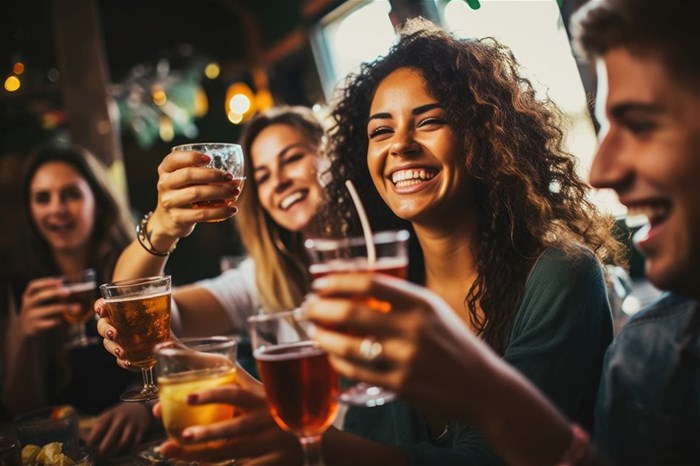
The standout performer in 2023? Flavoured Alcoholic Beverages (FABs) like ciders and coolers. NIQ-Gfk South Africa client strategy lead Gareth Paterson notes, "While beer and spirits faced challenges in returning to pre Covid-19 sales levels, FAB’s upward trajectory saw them capturing a larger share of the liquor basket. This reflects a significant shift in consumer tastes towards variety and flavour innovation in alcoholic beverages."
FABs have notably increased their share of the liquor basket, surpassing whisky, beer, and vodka. This surge drove their market share to 22%, up from 20% the previous year. In this evolving landscape of alcohol consumption, wine, and spirits both saw an increase in volume sales, led by gin, brandy, and liqueurs.
Despite these positive signs, on-site consumption at bars and restaurants has yet to reach pre-Covid-19 levels. Conversely, more South Africans are opting to purchase their alcohol from supermarkets, hypermarkets, spazas, and non-branded superettes. Paterson observes, "The robust performance of grocery chains and the resilience of traditional trade channels underscore a shift in consumer liquor purchasing behaviour."
Further analysis conducted by CGA powered by NIQ delved into the liquor consumption patterns of Generation Z and uncovered fascinating insights from the ever-changing world of younger consumers. Amongst them, 52% frequent hotspots like restaurants and bars every week. Unlike other consumer groups, this highlights their affinity for out of home leisure experiences.
Once they’ve taken their seats, variety reigns supreme and Generation Z boasts an impressive on-premise repertoire, averaging five different alcohol categories. Notably, these consumers display a strong penchant for cocktails, outpacing the average consumption rate, while beer has experienced a decline in popularity among the younger generation.
This trend presents a significant opportunity for spirits manufacturers, as Gen Z consumers lean towards spirits and international brands, showing less inclination towards beer, which poses a potential threat to traditional brews.
In the era of social media, influencers also wield considerable influence over Gen Z consumer choices, with 70% citing social media as a key influencer for dining and drinking decisions, and 57% influenced by celebrity endorsements or ownership when selecting beverages.
The research also revealed the highly developed social conscience of younger consumers with 81% prioritising supporting sustainable, ethical businesses when it comes to food and drink choices.
Looking ahead, it’s clear that the South African liquor market is successfully navigating a new era in post-prohibition consumption patterns and that traditional preferences are giving way to new trends. Younger generations are seeking out new alcoholic beverages, while well-established brands continue to hold strong.
Premium products face pressure due to inflationary forces, although pockets of premium, such as in the cognac and tequila segments, persist and often exceed normal growth rates.
Paterson therefore emphasises the importance of focusing on consumer needs, innovative offerings, sustainability, and incorporating local ingredients to meet evolving consumer demands. “As conscientious consumption becomes increasingly influential, it will shape product innovation and market strategies in the year ahead,” he concludes.